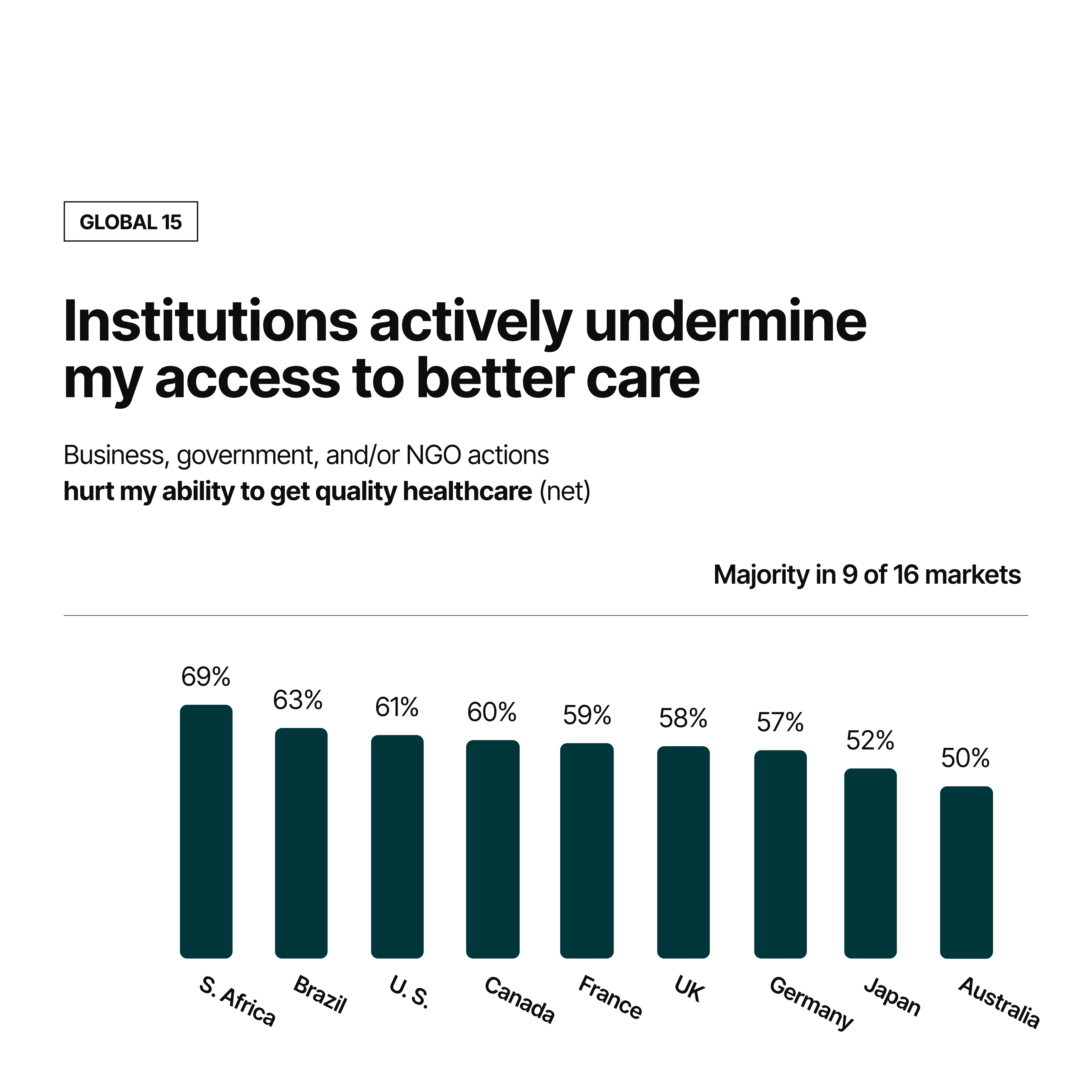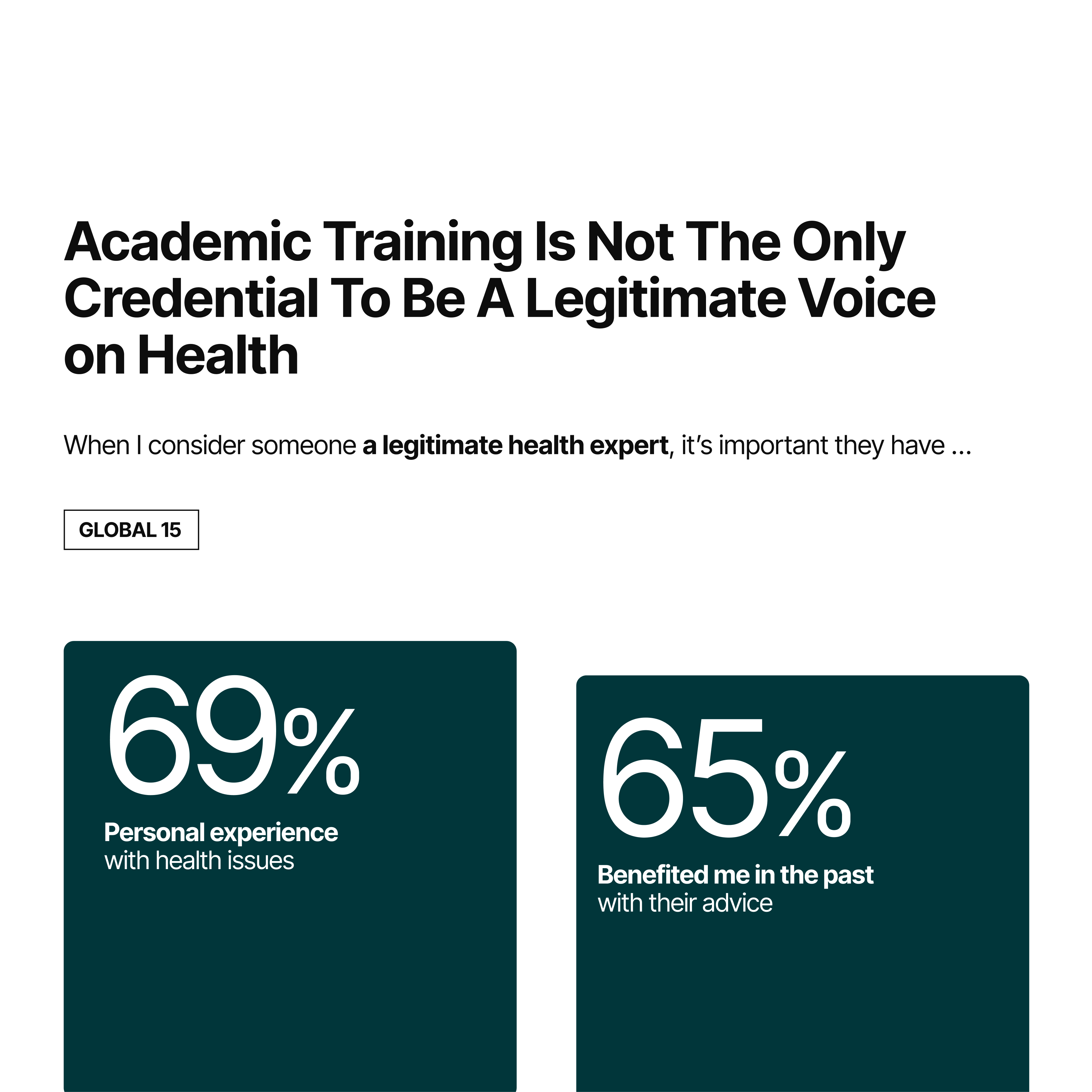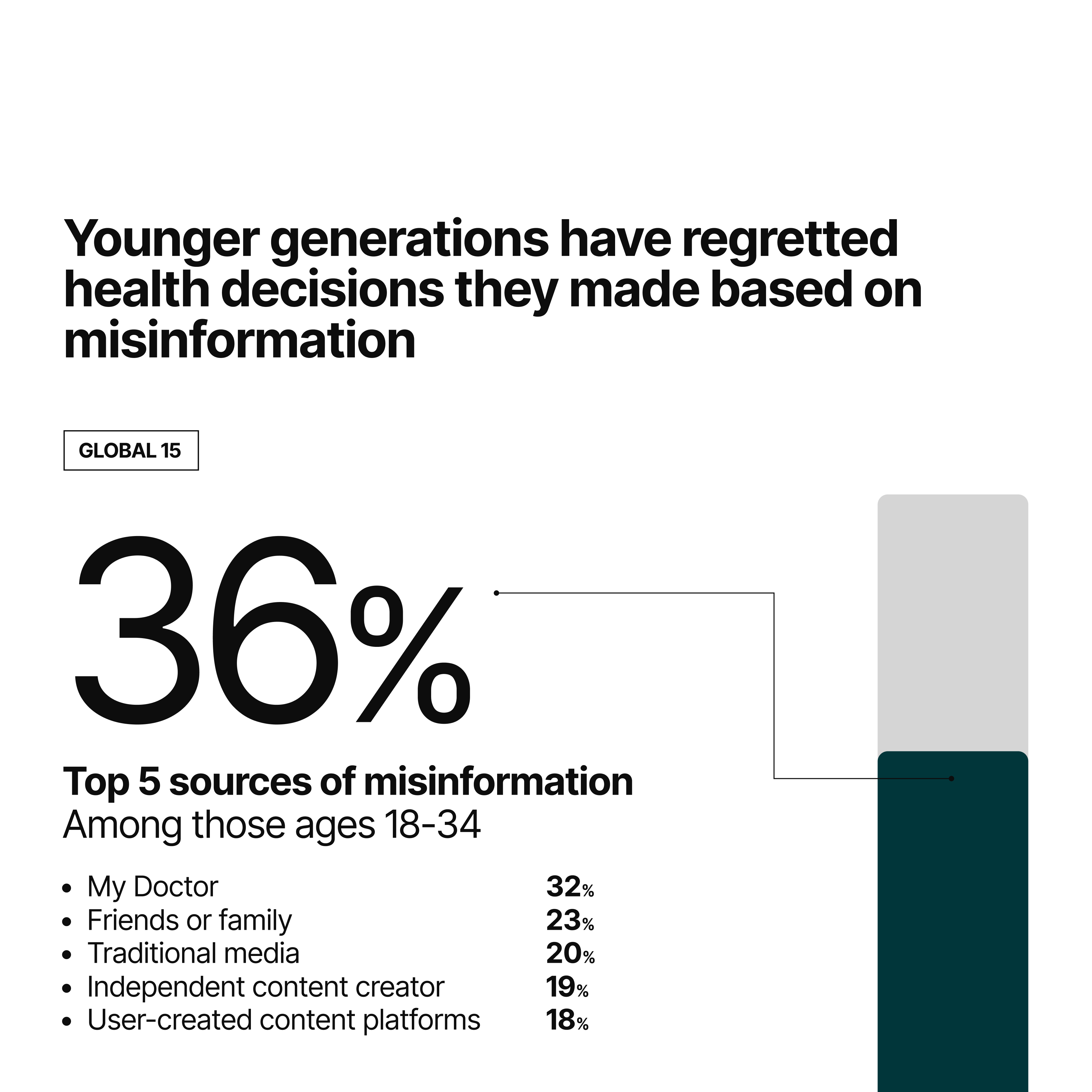- Global (EN)
- Africa (EN)
- Australia (EN)
- Belgium (EN)
- Brasil (PT)
- Canada (EN)
- Canada (FR)
- China (CN)
- France (FR)
- Germany (DE)
- Germany (EN)
- Hong Kong, China (EN)
- India (EN)
- Indonesia (EN)
- Ireland (EN)
- Italy (IT)
- Italy (EN)
- Japan (JP)
- Korea (KR)
- Latin America (ES)
- Malaysia (EN)
- Middle East (EN)
- Netherlands (EN)
- Spain (ES)
- UK (EN)
- Global (EN)
- Africa (EN)
- Australia (EN)
- Belgium (EN)
- Brasil (PT)
- Canada (EN)
- Canada (FR)
- China (CN)
- France (FR)
- Germany (DE)
- Germany (EN)
- Hong Kong, China (EN)
- India (EN)
- Indonesia (EN)
- Ireland (EN)
- Italy (IT)
- Italy (EN)
- Japan (JP)
- Korea (KR)
- Latin America (ES)
- Malaysia (EN)
- Middle East (EN)
- Netherlands (EN)
- Spain (ES)
- UK (EN)
.
New data shows rising confidence among young Australians yet trust in traditional health authorities is fracturing.
The 4th annual Edelman Trust Barometer Special Report on Trust and Health in Australia, released against the backdrop of rising youth engagement and deepening institutional mistrust, reveals a paradox at the heart of Australia's evolving health landscape. As confidence in navigating health information surges among younger Australians, so too does exposure to misinformation - with over half of those aged 18–34 regretting health decisions made as a result. In a sign of crumbling frontline trust, nearly a third cite their own doctor as a source of that misinformation.
The report exposes a decentralised health influence ecosystem where institutions - government, business, media or NGOs - are no longer trusted to meet health needs. Australians, particularly younger generations, are turning to peers, platforms and personal experience to guide their choices. In this new environment, relevance, relatability and resonance increasingly define legitimacy - and it is through empathetic, digital-first communication that trust will be won or lost.
The crisis of grievance is manifesting in Australia’s health system
Australians report a deepening distrust in institutions, with none of the major sectors – government, business, media or NGOs – seen as capable of addressing the nation’s health needs.


In Australia, legitimacy in healthcare goes beyond qualifications
While formal academic training remains a key marker of legitimacy, young Australians are increasingly valuing personal experience, relatability, and prior helpful advice when deciding who to trust with their health. For many, lived experience now stands shoulder to shoulder with clinical expertise in shaping perceptions of credible health voices.
Misinformation is driving health regret among young Australians
Despite their digital confidence, younger Australians are particularly vulnerable to misinformation, with 52% regretting a health decision made as a result. This misinformation most often comes from peers, social media, or even trusted sources like doctors - pointing to a breakdown in traditional health authority and the growing influence of uncredentialed voices.

.
Explore the findings


How to win influence over science communications
1. Engage in the youth health ecosystem early
Young people in Australia are consuming, creating, and sharing health content at a remarkable rate. Engaging them where they are and at their pace can shape the fabric of society and foster positive health behaviours for now and for the future.
2. Go beyond authority
Institutions remain important sources of influence; but communication must go beyond Authority - people’s confidence in finding information opens new opportunities for engagement and empowerment.
3. Be perseverant and consistent
With 360-degree influence from channels, voices, and content, communication must be persistent and perseverant in its engagement scale, depth and frequency.
4. Lead with relevance, empathy, reliability and proximity
Listen to real needs on the ground, identify gaps in organised support, engage authentically with local partners, and ensure information is within everyone’s reach.
Explore the findings
.
Top Findings
01
Half of young Australians regret a health decision based on misinformation
⟲
01
52% of people aged 18–34 regret a health decision based on misinformation, more than any other age group.
02
Youth are peer-driven decision makers
⟲
02
They are more likely to be influenced by their peers when making health-related decisions.
03
Health information is social currency for young people
⟲
03
Young people in Australia are almost twice as likely as the national average to share health-related news items and their personal health experiences and opinions online, giving further consideration to the decentralisation of health authority.
.
Subscribe for our research and insights directly to your inbox:
Methodology: The 2025 Edelman Trust Barometer Special Report: Trust and Health is in its 4th year. The research was produced by the Edelman Trust Institute and consists of 25-minute online interviews conducted between March 4 and 14, 2025. Learn more >
16 | 16,000+ | ±1000 |


